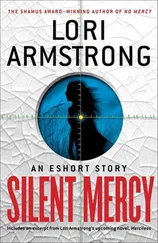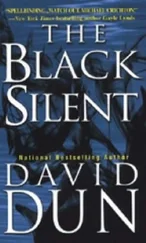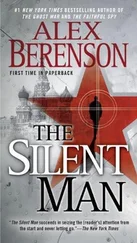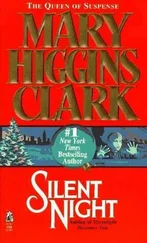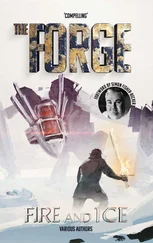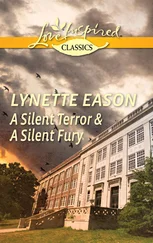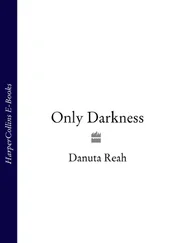‘Does Mike understand that? Christ, Suze, I can see the problem …’ Which, of course, he could. ‘But how often does Mike get to spend time with you?’ Suzanne felt the guilt twist in her. Dave was right.
‘It’s been hours now,’ she said. ‘And there’s something the police aren’t telling us. I think something’s happened.’ He looked at her and nodded, recognizing her assessment of the situation. ‘If I’m wrong, Michael can come back tomorrow, he can have his weekend …’
Dave shook his head. ‘He’s not a bloody pet, Suze. If he comes home tonight, he stays home. You can have him next weekend instead. I’m going away, and it’ll be easier without Mike.’ Was this the new girlfriend she’d heard about? Michael had talked about her before – what was the name? Carol? Carol does eggs with faces on … She felt confused, disorientated, with a sense of everything suddenly out of her control. ‘If you’re so worried about Jane,’ he went on, his impatience making him cruel, ‘you’d better get yourself sorted out.’
Jane. And Lucy. She’d been gone nearly an hour. Anything could have happened. She tried a conciliatory goodbye to Dave, but his face remained unforgiving. Michael was watching cartoons and shrugged her off impatiently when she tried to kiss him.
Her head was pounding. Dave was right. She needed to get herself under control before she went back. She decided to walk back through the park, and went on up the road to come in at a gate further into the woods. She couldn’t help Jane any more. What could she do or say? There was nothing to do or say. That detective had understood that, she realized. He knew that words were useless. It was what you did that counted.
She turned in to the park. She’d taken Michael by the road after they’d seen the searching police. Now she wanted to look, to see what was going on in the further reaches. Uneasily, she thought about that odd notice – it had been pushed out of her mind by later events. She should have told someone. She’d have to tell them as soon as she got back. But it couldn’t have anything to do with this. Lucy and Emma had gone to the playground in the first park. There was a main road and a long path between there and here. She looked round. There were no police. No patrol car, no one looking through the bushes – this part of the park was deserted. It was as if they had given up and gone home.
The sun was low in the sky now, the shadows of the trees slanting across the path. Suzanne walked slowly, letting the quiet ease her tension and letting the park take over her senses. She could see the pattern of light and shadow on the path. She could feel the early evening sun on her arms. She stood there under the trees, listening to the sound of children playing in the distance, the sound of the birds on the dam, the sound … That was new, different. A rhythmic, creaking sound that she didn’t recognize, and water, churning, running fast under pressure. She looked round trying to locate the source. Sound could be deceptive down in the park – it bounced off walls, off trees, deceived you into looking for it in the wrong directions and the wrong places. She realized that she’d been hearing the sound for a while. Her eyes moved round to Shepherd Wheel on the other side of the stream. That was it, that was where it was coming from. It took a moment before she could identify the noise, and then she wasn’t sure. It was – surely – the sound of the water-wheel turning.
She almost walked on, but why was the wheel working at this time of day? Why was the wheel working at all? The council had closed the place down, oh, years ago. Slowly she turned and crossed the bridge over the stream. As she walked towards the building she looked for a way in. The doors and windows were closed and shuttered. She followed the path round to the yard. The gate was padlocked. She frowned. She could hear the wheel clearly now: creak, creak. She shook the gate. The lock rattled. She went back and tried the door. It was bolted solid, the padlock bright and polished.
The events of the day coalesced into a picture she didn’t want to see. Lucy. The strange young man. The turning wheel. The gate was high metal bars, with a line of spikes at the top: the fence was the same, but it was overgrown with ivy and she was able to hook her foot into a branch and hoist herself up to grip the top of the fence. The branch snapped and she scraped her leg as she slipped, but she managed to keep her hold, to haul herself up further, her foot feeling for another hold in the ivy. There! Now she had her knee on the bar at the top of the fence. That would support her as she edged over the rusty spikes. God knows what she would do if she slipped and impaled herself. Now she had a foot on the other side of the fence. Awkwardly crouched over, she pulled herself across and, holding onto the spikes, lowered herself into the yard.
Her arms ached and her leg smarted where she had scraped it. It had occurred to her as she dropped into the yard that she would be in trouble if there were drunks or vandals, because she had no easy way out, but the lack of voices, of human sound, had reassured her, and she was right. There was no one there, just the wheel, turning and turning, the sluice open, the water falling onto the blades, the wheel turning down, down into the shadows, darker under the trees now that the sun was lower. The water cascaded, throwing out a spray of droplets that shone in rainbow colours where the sun caught them. As she watched, the flood of water narrowed, became a trickle, the rainbow lights faded and the wheel slowed, slowed and stopped. She moved closer to the railing and looked over the edge, down into the darkness where the wheel had turned.
Flowers in the water. Someone had scattered blue flowers that swirled in the turbulence left by the wheel, and the rays of the sun came through the canopy of the trees and turned the surface of the water into patterns of silver and blue, light and flowers, water and forget-me-nots. The bright light dimmed as a cloud crossed the sun, and the water was suddenly transparent, the stones on the wall beneath the water a soft yellow, the fronds of the fern dancing where they dipped below the surface. There was her reflection again, staring up at her from deep down, down beneath the wheel, down in the shadows, in the darkness. But the face was a bleached white, the eyes blank, staring, and the hair waving in the current was pale gold.
She didn’t remember climbing back out of the yard. She didn’t remember stopping the cyclist on the path. She just remembered sitting on the dry and stony ground, her back pressed against the wall as the feet ran past her.
Lucy. Lucy in the water under the churning wheel.
The body of the young woman had been pulled partly into the conduit that took the water back into the stream. A diver had gone down into the narrow space to free her from the grip of the water, so that they could, slowly and carefully, lift her out. The forget-me-nots caught in her hair and stuck to her face as she came out of the water. There were red marks around her mouth and, as her head lolled back against the man lifting her, a trickle of bloodstained water ran down her face. Suspicious death. She was young: seventeen, eighteen? She was wearing a T-shirt, nothing on her feet.
Detective Inspector Steve McCarthy looked away, at the scene around him. The wheel was still and silent. There was a smell of damp stone and wood in the air, of weed and stagnant water. The yard was fading into shadows as the sun sank lower behind the trees. A breeze blew, and the trees sighed and rustled, sending the shadows chasing across the flagstones. The flagstones of the yard were mossy and overgrown. The scene-of-crime team were already going over the ground and the wheel, looking for traces of the person or the people who had dumped the girl in the water, who had set the mechanisms going. McCarthy frowned. He couldn’t understand the turning wheel. It had attracted attention to the place.
Читать дальше

